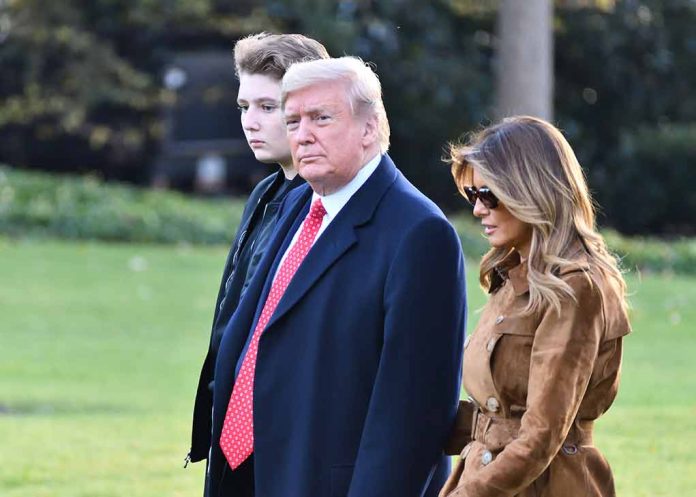
Donald Trump’s legal battles escalate as the New York Supreme Court sets his sentencing date for January 10, raising constitutional questions and political implications.
At a Glance
- A judge rejected Donald Trump’s request to dismiss a hush money case citing presidential immunity.
- Trump faces sentencing on January 10, facing potential no prison time.
- Justice Merchan suggested an unconditional discharge rather than incarceration.
- Trump will be the first former president elected to office while convicted of a crime.
Rejection of Dismissal
The New York Supreme Court, under Justice Juan Merchan, denied Donald Trump’s motion to dismiss the controversial hush money case. This decision came despite Trump’s lawyers arguing for dismissal based on presidential immunity and the Supremacy Clause. The conviction involves Trump’s handling of payments relating to Stormy Daniels, which led to 34 felony counts. Justice Merchan indicated that neither presidential immunity nor constitutional provisions necessitated an indictment dismissal.
Donald Trump, convicted and facing a set sentencing on January 10, will soon be in an unprecedented position. Set shortly before his second presidential term, he will assume office with felony convictions. This marks the first time a president-elect faces sentencing under such circumstances. Despite the severity of the charges, Judge Merchan suggested he preferred an unconditional discharge over prison time, signaling a unique legal approach.
Justice Merchan’s Inclination
Justice Juan Merchan has indicated a preference for an unconditional discharge, avoiding prison time for Donald Trump. His rationale cited the impracticality of incarceration given the current legal and political context. This choice highlights a balancing act between legal mandates and the complexities of prosecuting a former president. Merchan noted that ensuring finality in this matter demands careful judicial consideration, especially considering potential implications on Trump’s presidency.
“While this Court as a matter of law must not make any determination on sentencing prior to giving the parties and Defendants, opportunity to be heard, it seems proper at this juncture to make known the Court’s inclination to not impose any sentence of incarceration, a sentence authorized by the conviction but one the People concede they no longer view as a practicable recommendation,” Judge Merchan wrote on Friday.
As the case unfolds, another layer involves Trump’s choice to appear virtually or in person for his sentencing. This flexibility contrasts with the often rigid nature of traditional judicial proceedings. Trump’s legal team also pointed out potential political motivations and contested jury verdicts, labeling the indictment as a politically-driven “witch hunt.” The Manhattan District Attorney Alvin Bragg remains at the center of these claims.
Broader Implications
Beyond the immediate impact of the sentencing, the broader legal implications are significant. Trump’s legal team has highlighted concerns about the case’s political motivations and information leaks. Such discussions reflect deeper societal probing into the intersection of law, politics, and presidential authority. Trump’s statements underscore the ongoing rhetorical battles surrounding high-profile trials.
“This lawless case should have never been brought and the Constitution demands that it be immediately dismissed. President Trump must be allowed to continue the Presidential Transition process and to execute the vital duties of the presidency, unobstructed by the remains of this or any remnants of the Witch Hunts. There should be no sentencing, and President Trump will continue fighting against these hoaxes until they are all dead,” said Trump spokesman Steven Cheung.
Justice Merchan’s ruling has reaffirmed the stance that presidential status as president-elect does not automatically confer immunity comparable to that of a sitting president, emphasizing proper judicial procedure. This case sets a precedent on how legal affairs intersect with political roles for leaders of the highest office, redefining judicial expectations and presidential accountability.


